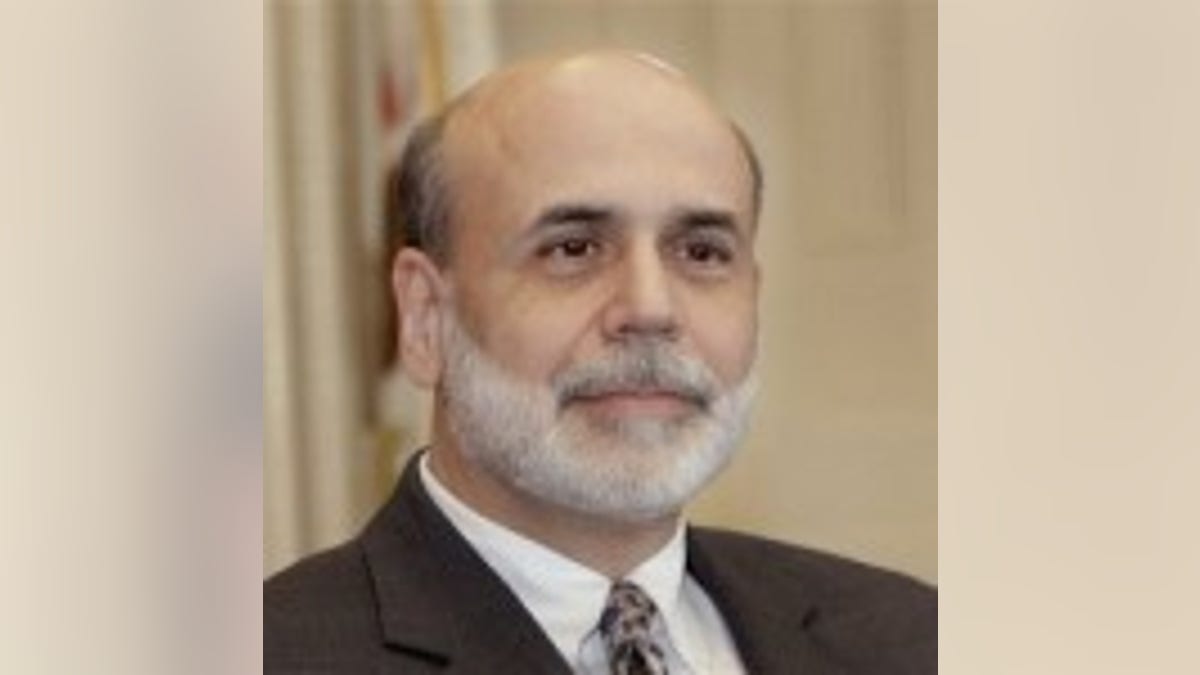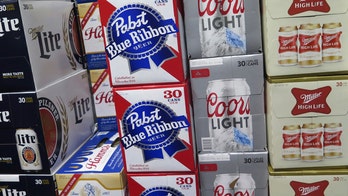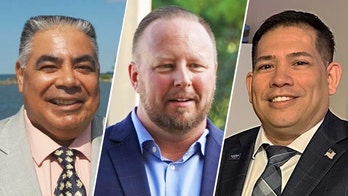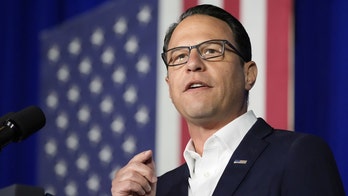
(AP Photo)
The Senate has confirmed Ben Bernanke for a second term at the Federal Reserve in a vote of 70-30, just days after the nomination was in serious jeopardy. Democrats and Republicans, alike, have beaten up on Wall Street bailouts and 'fat cat' bankers for much of this year, particularly as rescued banks now are paying out big bonuses to their executives. But the Massachusetts Senate race, in which a Republican outsider rode a wave of populist, anti-Washington anger to victory, was the straw that broke the camel's back.
Democrats, in particular, rushed to voice doubts about and even opposition to Bernanke, who was at the Fed when the nation nose-dived into a financial crisis, as a way to beat up on Wall Street and show Americans they care. Republicans, equally, clamored to voice compassion for the pain of out-of-work Americans, particularly in what could be a pivotal midterm election year and especially on the heels of similar electoral victories in Virginia and New Jersey.
Opponents on both sides of the aisle criticized Bernanke for failing to detect the housing bubble and keep it from bursting. Even one of his loudest proponents, Sen Banking Committee Chairman Chris Dodd, D-CT, criticized Bernanke at the time for this, but Dodd also worked overtime behind the scenes to help President Obama rescue the nomination, telling reporters that there was a genuine fear about the effect a failure would have on the stock market.
Sen. Bernie Sanders, I-VT, captured that populist sentiment in emotional speeches against Bernanke, leading a filibuster against the nominee. For Sanders, it's about many things -- failing to detect the housing bubble, failing to curb high credit card interest rates, a failure of transparency on what the Fed did to rescue Wall Street firms, and more. And Sanders has had considerable success.
Democratic leaders, who themselves were undecided just days ago, scrambled to save Bernanke. The President and Cabinet members made personal calls to senators.
Sen. Dick Durbin, D-IL, the Democrats' vote-counter, even brought Bernanke in for a one-on-one meeting Monday to announce his full support, saying Democrats could protest against Wall Street, instead, by supporting financial regulatory reform and a jobs package coming forward next week, not by rejecting Bernanke.
But not everyone was sold. One GOP senator last week told Fox, "There's blood in the water," as he, himself, tried to come to grips with what to do about the nomination. The senator said Democrats were even calling him trying to figure out what to do.
Sen Sheldon Whitehouse, D-RI, who's state's unemployment rate hovers near 13%, gave voice to the frustrations of many of his colleagues, decrying "Goldman Sachs, the Wall Street behemoth" announcing "a bonus pool of $16.2 billion", $9.3 billion in bonuses for J.P. Morgan execs, and said Bernanke and the Fed had not done enough to help the little guy.
"Ben Bernanke bears considerable responsibility for the lax regulation that brought about the housing bubble. And there is nothing that he could confess to erase that," Whitehouse said, announcing his intention to oppose the nomination.
It is important, however, to note that Whitehouse, like several of his Democratic colleagues, will vote to shut down the filibuster, a critical 60-vote threshold Majority Leader Reid must meet to get to a final confirmation vote.
Whitehouse admonished President Obama's economic team, saying, "I want to express with my vote that the leaders of President Obama's economic team must pivot from the necessary rescue of our major financial institutions to equally-if- not-more-necessary help to America's families."
The lead proponent of Bernanke on the Republican side, Sen Judd Gregg, R-NH, argued that the very way Ben Bernanke handled the economic crisis is the very reason he should be confirmed to a second term.
"I think the real test of his leadership and his ability to manage the money supply and to live up to the primary commitment of the Fed, which is to have sound money and a strong economy, was how he handled the crisis of late 2008, and as a corollary to that, how he intends to handle the impending problems with the -- with the liquidity that's in the market and needs to come out of the market," Gregg said. "This would be the person I would want to hire, because I think he is the best person for the job, and is he perfect? No. Nobody's perfect anywhere, but has he proven himself to be an extraordinarily talented and aggressive leader who saw a crisis, managed it, and kept a lot of Americans from having a much more severe impact on their lifestyle as a result of his actions? Yes."
Regrettably, Gregg said, the President fanned the flames of discontent. He, according to Gregg, joined in on beating up Wall Street and "threw kerosene on the fire" - which, Gregg said "unfortunately blew back on his own Fed chair nominee."




